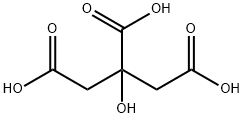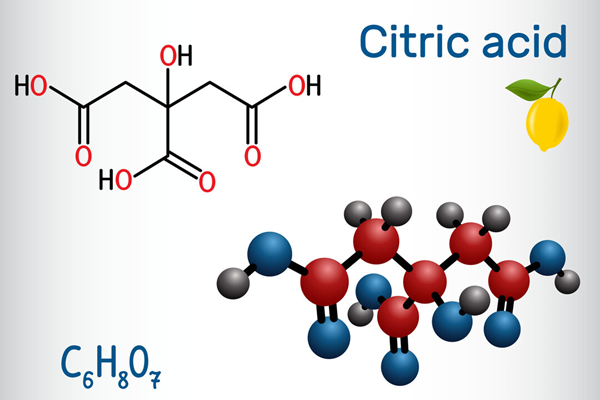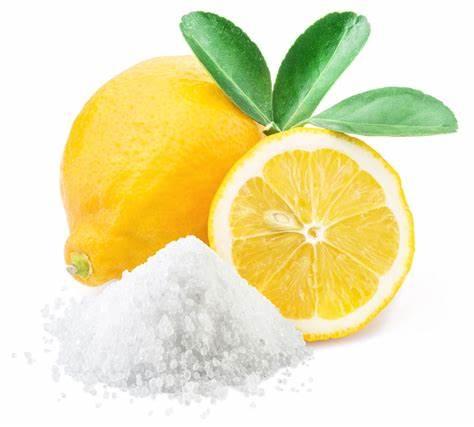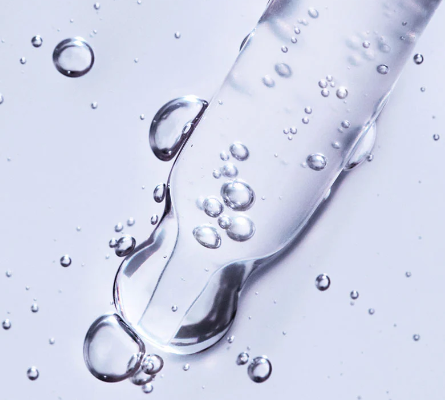The health benefits of Citric acid
What is Citric acid?
Citric acid is a tricarboxylic acid, which is widely used in various industrial fields such as pharmaceuticals, food, chemicals and cosmetics due to its biocompatibility, multifunctionality and green characteristics. It is a weak acid found in citrus fruits such as lemons. Lemon contains 7-9% citric acid in its dry weight. The three carboxyl groups of citric acid monohydrate have different pKa values i.e. 3.15, 4.78 and 6.40.Citric acid can be obtained by extraction from lemon or prepared by chemical or microbial fermentation. Aspergillus niger (A. niger) is the main source of citric acid production.
Citric acid is used as a pH regulator, antioxidant, flavouring agent, dietary supplement, multifunctional pharmaceutical excipient, chelating agent and buffering agent in cleaning products. It is also a raw material for the synthesis of citrate, itaconic acid, acetone dicarboxylic acid and other compounds.
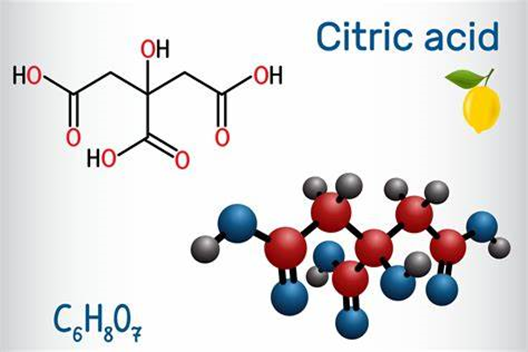
Benefits of Citric acid
Regulation of the intestinal barrier promotes immune function
Citric acid strengthens the intestinal tight junction barrier, inhibits the replication of influenza viruses that target the intestines, and enhances intestinal immune function. Studies have shown that citric acid promotes weight gain by stimulating the growth of intestinal epithelial cells (IE-6). Citric acid increases the villus-villus ratio of the small intestine in mice, thereby promoting the formation of structural intestinal morphology. In addition, citric acid increases the number of beneficial intestinal microorganisms, including bifidobacteria and lactobacilli. Citric acid also promotes the expression of important protein genes, such as occludin, ZO-1, and claudin-1, which play a crucial role in maintaining the integrity of the intestinal tight junction barrier. Furthermore, in IEC-6 cells infected with H9N2 avian influenza virus, citric acid enhanced the expression of genes closely related to influenza virus infection. Furthermore, citric acid reduces the inflammatory response to viral infection and prevents the replication of influenza virus. However, it remains to be seen whether it is equally effective in humans.
energy metabolism
Citric acid is one of the key components of the citric acid cycle and is involved in the body's energy metabolism. The citric acid cycle, complex 1.1, is a NAD+-regulated cycle in which the substrate is lactic acid and the product is malic acid. The citric acid cycle 2.1 complex is a FAD-regulated cycle in which the substrate is malic acid and the product is succinic acid or citric acid. The function of the citric acid cycle 2.1 complex is to equalise pressure conditions within the cell.
Prevention of Kidney Stones
Citrate salts (potassium citrate) prevent new kidney stones from forming and break down those that have already formed.
References:
[1] MARIA LAMBROS. Citric Acid: A Multifunctional Pharmaceutical Excipient.[J]. Pharmaceutics, 2022. DOI:10.3390/pharmaceutics14050972.
[2] HU P, YUAN M, GUO B, et al. Citric Acid Promotes Immune Function by Modulating the Intestinal Barrier[J]. International Journal of Molecular Sciences, 2024. DOI:10.3390/ijms25021239.
[3] DIRK ROOSTERMAN Graeme S C. Discovery of a second citric acid cycle complex.[J]. Heliyon, 2023. DOI:10.1016/j.heliyon.2023.e15968.
Related articles And Qustion
See also
Lastest Price from Citric acid manufacturers
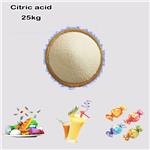
US $0.00-0.00/kg2025-12-09
- CAS:
- 77-92-9
- Min. Order:
- 1kg
- Purity:
- 99%
- Supply Ability:
- 100kg

US $1.00-0.50/kg2025-11-03
- CAS:
- 77-92-9
- Min. Order:
- 1kg
- Purity:
- 99%min
- Supply Ability:
- 200tons
